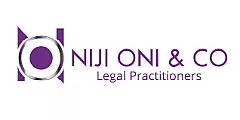- within Technology, Privacy and Strategy topic(s)
The Local Content Compliance Requirement 2024 is a new piece of legislation aimed at increasing the participation of Nigerian businesses and individuals in the country's economy. This Act is likely to introduce new regulations, standards, and requirements for companies operating in Nigeria. It may also establish a regulatory body to oversee compliance and enforcement.
The Value Proposition
This Act is crucial for several reasons:
Economic growth: By promoting local content, the government aims to stimulate economic growth, create jobs, and develop local industries.
Technology transfer: The Act may encourage technology transfer and capacity building within Nigeria.
Revenue generation: Increased local content can lead to higher tax revenues for the government.
Dependency reduction: Reducing reliance on foreign goods and services can enhance Nigeria's economic resilience.
Compliance risks: Companies operating in Nigeria must understand and comply with the new regulations to avoid penalties and reputational damage.
Strategies to Adopt
Compliance assessment: Evaluate your business operations to identify areas of compliance and potential gaps.
Supplier development: Build relationships with local suppliers and contractors to meet local content requirements.
Skills development: Invest in training and development of Nigerian employees to enhance their capabilities.
Operational changes: Adjust your business processes and systems to comply with the new regulations.
Cost implications: Assess the potential financial impact of the Act, including increased costs for local sourcing or compliance activities.
Risk management: Identify and mitigate potential risks associated with non compliance, such as penalties or reputational damage.
Advocacy: Engage with industry associations and government agencies to influence the implementation of the Act.
Under the local content compliance requirements Directive, the Nigerian Content Development and Monitoring Board (NCMDB) is directed to consider two key factors when implementing the Nigerian Oil and Gas Industry Content Development Act. These factors are: Insufficient In-Country Capacity and Investment and Cost Competitiveness.
The content of this article is intended to provide a general guide to the subject matter. Specialist advice should be sought about your specific circumstances.




